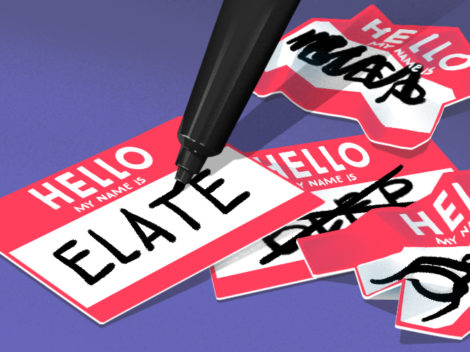The stunning move by the FDIC to take over Silicon Valley Bank on Friday left venture firms and their portfolio companies staring at a great unknown many never thought possible.
SVB works with more than half of all U.S.-based startups and is the preeminent provider of venture debt in the industry. Its collapse leaves open gaping questions among startups about cash flow and access as bank regulators moved in.
Search less. Close more.
Grow your revenue with all-in-one prospecting solutions powered by the leader in private-company data.
The bank held $175.4 billion in deposits as of Dec. 31, and 93% of those are uninsured, according to regulatory filings. That leaves unresolved how thousands of companies in Silicon Valley’s intricately connected tech sector who banked at SVB and were unable to access their deposits will make payroll or pay vendors and rent, if those funds remain inaccessible.
Ryan Bloomer, founder and managing partner at New York-based early-stage investment firm K50 Ventures, said some portfolio companies have already expressed concerns — not about meeting payroll, but about access to cash for other expenses after the FDIC’s takeover.
Insured deposits of up to $250,000 held at SVB are protected, regulators said Friday. Uninsured depositors will receive a “dividend” of an unspecified amount next week, the FDIC said, and a “receivership certificate for the remaining amount of their uninsured funds.”
As the bank’s assets are sold, “future dividend payments may be made to uninsured depositors,” the FDIC said.
Many VC firms have stepped up to assure startups they will be provided bridge loans if necessary as the SVB drama plays out, Bloomer said.
Even as early as Thursday, some VCs were already preparing for the worst, telling portfolio companies to diversify where they keep their cash and ensure no more than $250,000 is in one bank.
Some also were telling their portfolio companies to make sure they had easy access to at least six months of cash burn in case the unthinkable happened.
Looking for a buyer?
SVB’s client roster includes some of the most prominent venture firms in Silicon Valley, from Sequoia Capital to Kleiner Perkins and Accel. According to data pulled from Crunchbase, the bank participated in 75 founding rounds last year — mainly involving venture debt — that totaled $5.7 billion. That included leading a $200 million venture debt round for San Jose-based Automation Anywhere.
That deal number is likely low, as many private companies do not publicly divulge debt financings — but nevertheless shows how intertwined the bank has become with the tech startup ecosystem.
SVB has about $209 billion in total assets. In 2021, the bank took part in 73 rounds that totaled $3.1 billion, per Crunchbase. Thus far this year, the bank has participated in eight announced rounds, whch includes leading a $30 million debt round for San Francisco-based InfluxData.
Despite Friday’s shocking turn, many were already looking to what’s ahead for the 40-year-old bank, with most thinking a buyer is lurking somewhere.
“They have a great business,” Bloomer said. “This was just a traditional bank run. This wasn’t like the meltdown in 2008. There were really no toxic assets.”
Zack Ellison, founder of Applied Real Intelligence Venture Debt Opportunity Fund, agreed that a buyer is likely out there and something could happen quickly due to SVB’s prominence in the tech world.
JP Morgan would be a logical buyer due to its balance sheet and known desire to get more into venture lending, Ellison said. Other bidders could include Citi or Wells Fargo, as both also have tried to increase their venture debt presence, he added.
“Someone will buy it,” he said. “They have access and relationships in the valley that many banks see as crown jewels.”
Ellison called the fall of SVB “monumental,” and added he already has been contacted by founders, VCs and lenders as concern has spread.
“It’s already had a ripple effect,” Ellison said. “It’s created a gap in the innovation funding market.”
How SVB unraveled
SVB’s descent into receivership follows a dramatic decline in its stock price on Thursday after the bank said it had taken a $1.8 billion loss on bond sales in Q1 and was seeking to sell shares to raise additional capital to shore up its balance sheet. The share slide in turn prompted a bank run by depositors as panic spread about companies’ ability to get their money out.
SVB has said its balance sheet came under pressure after its startup clients began to draw down deposits. “We are taking these actions because we expect continued higher interest rates, pressured public and private markets, and elevated cash burn levels from our clients as they invest in their businesses,” the bank wrote in a letter to shareholders.
In an earlier presentation to investors, SVB said client cash burn “remains about 2x higher than pre-2021 levels and has not adjusted to the slower fundraising environment,” seemingly illustrating that startups have not reversed their previous patterns of spending.
Illustration: Dom Guzman

Stay up to date with recent funding rounds, acquisitions, and more with the Crunchbase Daily.







![Illustration of a man sitting on a huge pile o' money. [Dom Guzman]](https://news.crunchbase.com/wp-content/uploads/Giant_Funding-300x168.jpg)

![Illustration of woman building charts. [Dom Guzman]](https://news.crunchbase.com/wp-content/uploads/charts-300x168.jpg)


67.1K Followers